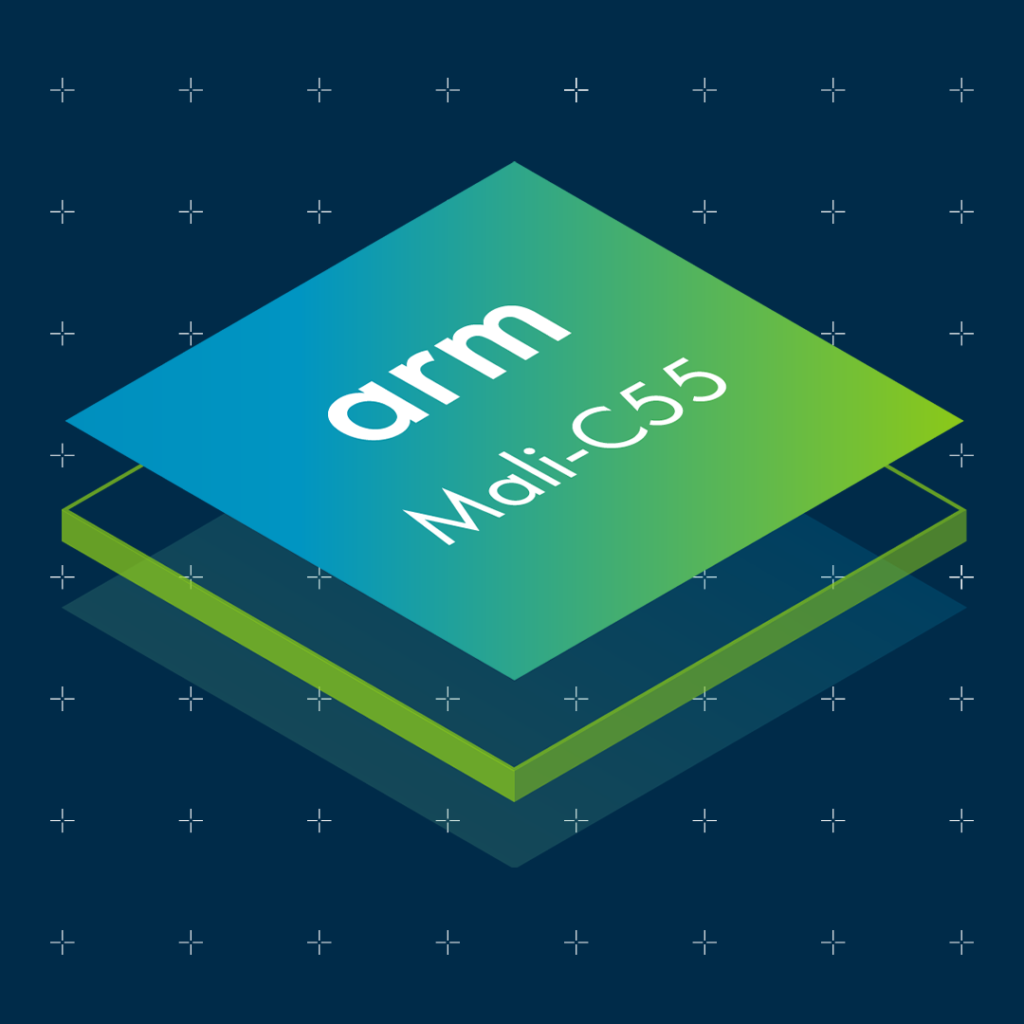News highlights:
-
Arm Mali-C55 is the smallest and most configurable image signal processor from Arm, already seeing success with licensees such as Renesas
-
Delivers improved image quality and higher performance for advanced embedded and IoT vision systems with half the silicon area of previous generations
-
Multi-camera high resolution support and seamless integration for more machine learning on- device offers new capabilities for silicon partners and OEMs
Image signal processors (ISPs) continue to be one of the most important information-generating devices, supporting a broad range of IoT vision system applications including commercial, industrial or home smart cameras, and drones. With increased demand for both more and higher quality image processing in future devices, Arm’s ISP technology roadmap is an area of continuing investment. Today, we are pleased to share the latest results of that work with the launch of the new Arm Mali-C55 ISP, the smallest and most configurable ISP from Arm to date, already proving popular with partners including our first public licensee, Renesas.
The Mali-C55 delivers upgraded image quality features, works under a wide range of different lighting and weather conditions, and is designed to enable maximum performance and capability in area and power constrained applications, making it ideal for smart camera and edge AI vision use cases. This advanced technology will deliver improved capabilities in several markets – surveillance and security cameras will be able to detect more critical detail, such as recognizing the exact information on license plates traveling at up to 75mph; home cameras and security systems will capture higher resolution images both inside and out; and smart home hubs can efficiently include advanced features like secure visual unlock.
For developers, we’re providing a complete software package for controlling the ISP, as well as a full set of tuning and calibration tools to help our partners to achieve the desired image quality for their application. Additionally, our latest roadmap of Total Solutions for IoT includes an upcoming Total Solution for vision, which will integrate the Mali-C55 – stay tuned for more updates on that.
Pushing the boundaries of image quality in the smallest area and power budgets
With multi-camera capability for up to 8 separate inputs, support for image resolutions up to 8K and a maximum image size up to 48 megapixels (MP), the Mali-C55 offers the most efficient combination of image quality, throughput, power consumption and silicon area. Building on the class-leading Mali-C52 ISP, it enables unrivalled image quality through features including improved tone mapping and spatial noise reduction, enhanced support for high dynamic range (HDR) sensors and seamless integration with machine learning accelerators to take advantage of neural networks for various de-noising techniques. By combining multiple Mali-C55 ISPs, larger image sizes can be achieved for applications that require greater than 48 MP capabilities, such as video conferencing.
For embedded and IoT vision applications, silicon footprint and cost are important factors, and with the Mali-C55 we’ve provided these enhanced features in almost half of the silicon area size of previous generations, significantly lowering power consumption for extended battery life, and in the process also lowering the cost of these devices.
Vision systems demand advanced machine learning
As ML moves closer to the edge, advanced image processing can be leveraged by integrating more ISPs into the SoCs. By enabling easy integration between Mali-C55 and machine learning accelerators, we’re delivering new levels of on-device processing in devices that require high quality vision systems because the output from the ISP can be sent directly to the ML accelerator. This reduces cost and processing time by having less data sent from device to cloud, without having to compromise on inferencing.
Configurability is key in a diverse market
The applications that require ever-advancing vision systems are wide-ranging, and so imaging technology has to be adaptable to specific market requirements. For example, a low-cost home camera system may require a simple, limited set of features whereas a commercial camera might demand more sophisticated capabilities such as high resolution, noise reduction and enhanced security. Silicon partners and OEMs need the freedom to easily add or remove features in line with their application requirements, and that’s why we’ve designed the Mali-C55 to be our most configurable ISP. In addition to the multi-camera support and integration with ML accelerators already mentioned, the Mali-C55 also includes industry standard AXI and AHB interfaces for easy integration with either Cortex-A or Cortex-M- based SoCs.
The Mali-C55 ISP illustrates Arm’s continued pursuit to provide industry-leading imaging technology. This new technology will enable SoC architects, imaging experts and embedded software developers to create market-leading products in the growing smart camera and edge AI vision markets. You can read more technical detail and find out more in this blog.
Mohamed Awad
Vice President of IoT and Embedded, Arm


